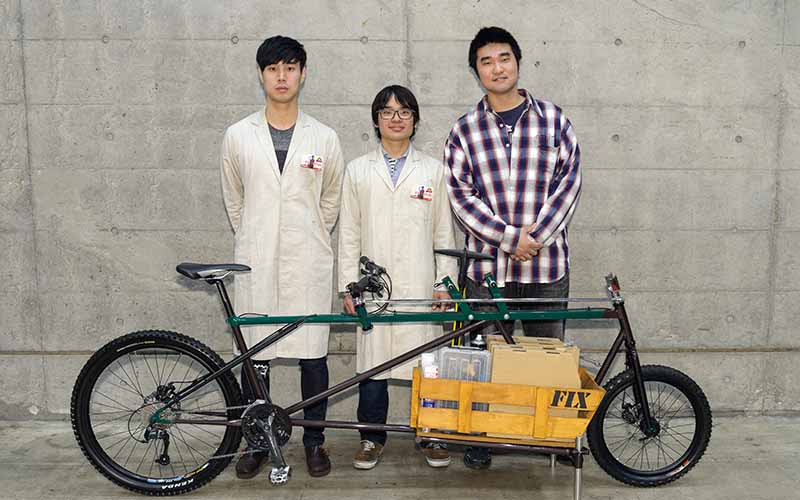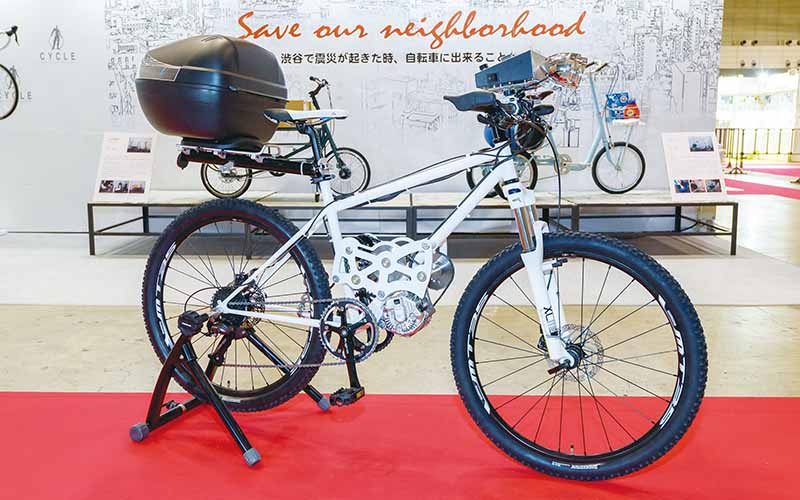CourseCourse introduction
Learn all about bicycles at Asia’s first bicycle design school!
Tokyo College of Cycle Design is the first Japanese government authorized college, opening in April 2012 at Tokyo Shibuya. The curriculum, from basic product design skill to frame building and maintenance techniques, will lead all students for the "Bicycle Creators" of new generation in two or three years program. You can challenge everything of bikes with us!
Features of Tokyo College of Cycle Design
Asia’s first school dedicated to bicycles
Tokyo College of Cycle Design (TCD) is Japan’s first (and Asia’s only) authorized college that focuses on bicycle education. The college allows students to learn all about bicycles—which is attracting the attention of the world as an environmentally friendly means of transportation—and develops individuals who will lead the bicycle industry in the future.
First-class lecturers that are driving the bicycle industry
Attractive lessons are given by first-class lecturers, including Mr. Shin-ichi Konno, owner of the hand-made bicycle brand Cherubim, which is highly rated both in Japan and throughout the world.
Foreign Student Center
TCD students can obtain a student visa valid for up to two years and three months. The Foreign Student Center offers advice to foreign students concerning their residence status in Japan, helps them obtain the proper residence status, and provides support for their lives in Japan.
Complete employment support
Throughout the year, TCD offers various programs to support students’ academic or career choices, such as career counseling and seminars for job seekers. In addition, full-time career counselors provide complete assistance so that each and every student can choose a career most suitable to them, whether they wish to seek employment or further study abroad.
Course introduction
| Sports Engineering Design Department | |
|---|---|
| Bicycle Advanced Course (4-year program) |
This course teaches students the skills they’ll need to ensure the future of the industry, including the use of new materials such as carbon and titanium, how to incorporate bicycles into various lifestyles, and communication methods to raise interest in cycling. |
| Bicycle Creation Course (3-year program) |
This course helps students explore the vast potential of the bicycle as a vehicle, as well as how to present their own work to the world through opportunities to collaborate with companies and the like. |
| Bicycle Standard Course (2-year program) |
This course gives students the knowledge and skills essential for employment in the bicycle industry—such as bicycle mechanisms, building, assembly and design—in a short time. |
-
BICYCLE BUILDING
In this curriculum, students will acquire skills to build frames (including components) with the appropriate use of various tools. During their first year, students will take a common program designed for both courses. After learning about basic frame structure and how to handle jigs, students will create their own original frames. During the second and subsequent years, students will take up the challenge of creating of more complex structures, such as piste bike, BMX, and MTB.
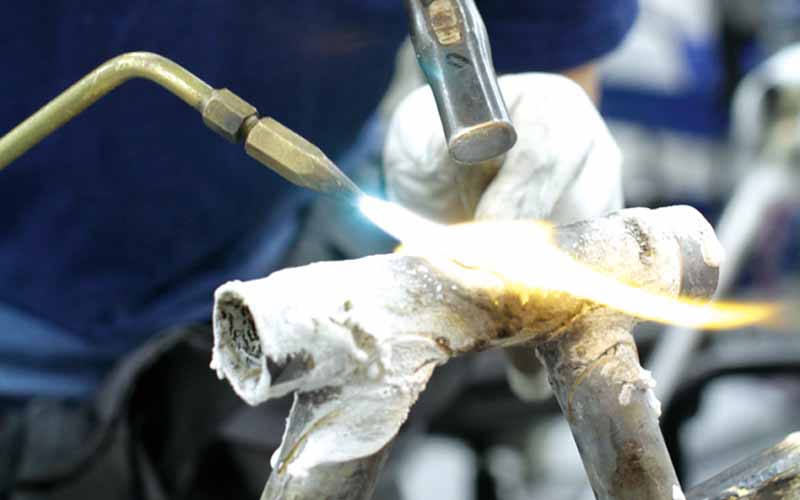

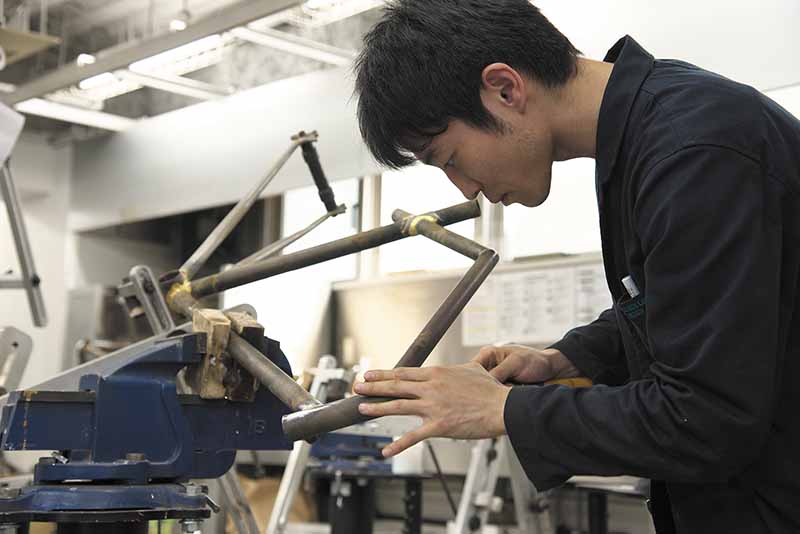
-
BICYCLE MAINTENANCE
This program allows students to learn about bicycle assembly and maintenance, starting with the basics. They learn techniques for handling various types of bicycles and gain an understanding of the components and master ergonomics required for measurements through experience. This program also prepares students to obtain a bicycle engineer’s license and a bicycle safety mechanic’s license.
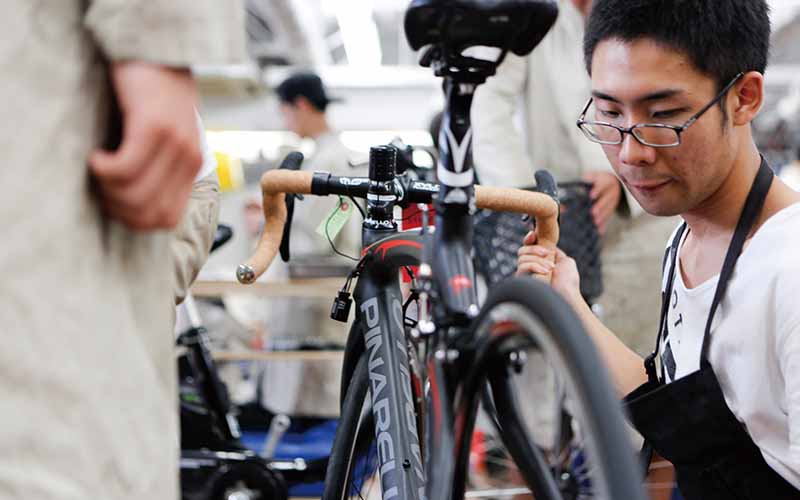
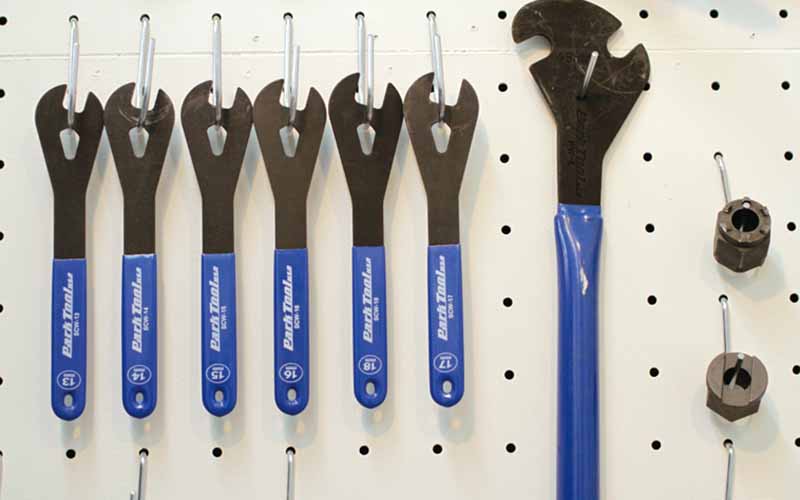
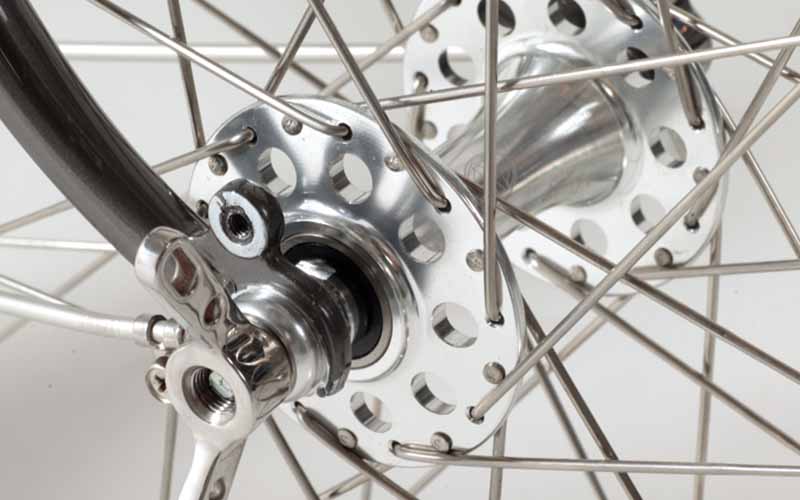
-
BICYCLE DESIGN
In this curriculum, students study a wide range of design skills related to bicycles. They gain an understanding of industrial design methods while using their hands, and classes include sketch training using illustrators and three-dimensional modeling of carbon wheels using CAD.
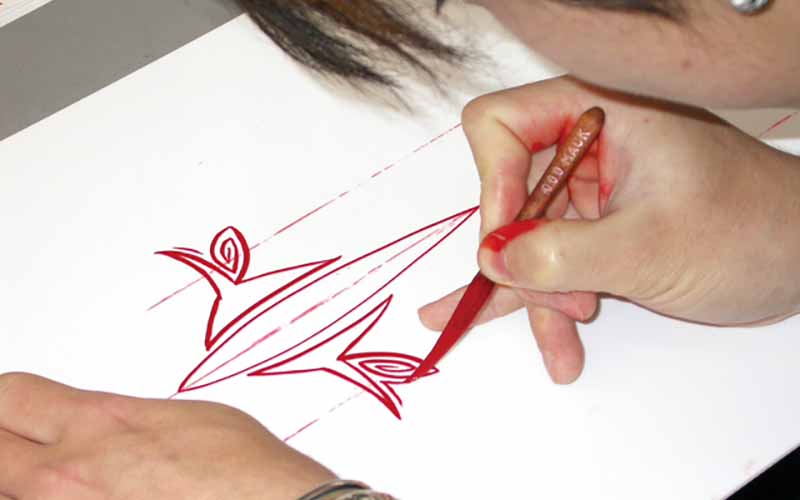

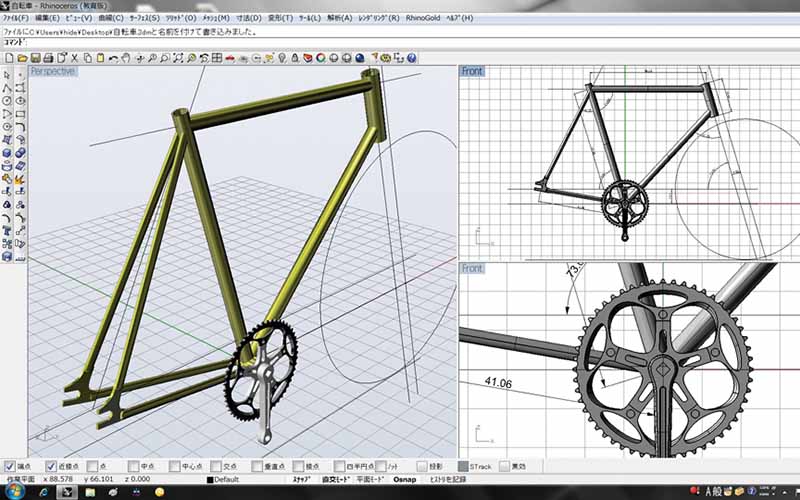
-
BICYCLE CREATION
This program is for third-year students in the three- and four-year programs. It is filled with projects to allow the students to demonstrate their creativity in a broad manner to the industry and to society. Students will create bicycles for specific targets or purposes, and will work on practical projects, including collaborating with companies and submitting their works to outside exhibitions.

